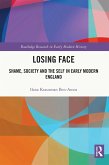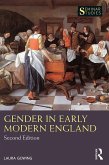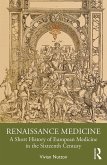Dieser Download kann aus rechtlichen Gründen nur mit Rechnungsadresse in A, B, BG, CY, CZ, D, DK, EW, E, FIN, F, GR, HR, H, IRL, I, LT, L, LR, M, NL, PL, P, R, S, SLO, SK ausgeliefert werden.
Lyndal Roper, University of Oxford, UK
'Joy Wiltenburg's stylish new book on laughter is no joke, but rather an elegant, well-informed, clever, and, above all, contextualized study of a subject too readily dismissed as not historical at all or unserious. Wiltenburg's probing analysis of laughter in all its guises-the smirk, the snicker, the smile, the grin, the full-throated roar, the guffaw, and the belly-laugh-addresses the very serious matters of gender, power, and class as they shaped how, when, why, and with whom one laughed. Serious and entertaining by turns, it is also, as fully befits the subject, a rollicking good read.'
Mary Lindemann, University of Miami, USA
'Joy Wiltenburg has given us an astonishingly original insight into one of humanity's truly universal activities. Guided by her sparkling and evocative prose, we come to appreciate laughter as a deeply social language that can reveal or conceal, celebrate or ridicule, bond or antagonize. Moreover, her appropriately entertaining anecdotes from the self-testimonies of expertly selected early modern men and women open a fascinating window into their lost world. Highly recommended for general readers and scholars alike.'
Joel Harrington, Vanderbilt University, USA









